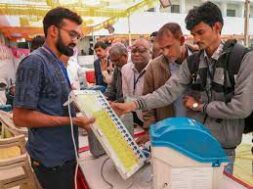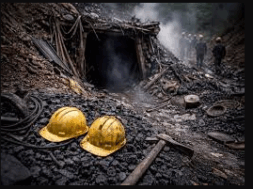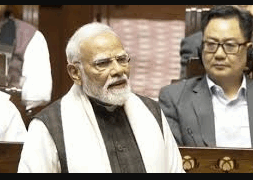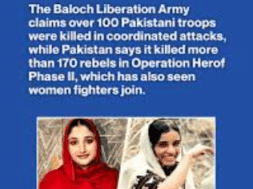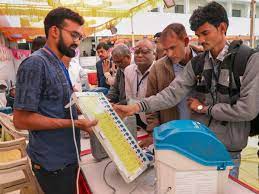
Gujarat Elections: Second and Final Phase of Polling on Monday, BJP has an Upper Hand
Manas Dasgupta
NEW DELHI, Dec 4: As many as 833 candidates are in the fray in the 93 constituencies in 14 districts in north and central Gujarat which will go to the polls in the second and final phase of voting in the elections to the state Assembly on Monday.
An Election Commission press release said 93 seats included 74 in the general category, six scheduled caste reserve and 13 schedule tribe resrve seats where an electorate of 2.51 crores would exercise their franchise in over 32,000 polling booths.
In the second phase of polling, the ruling BJP apparently has an upper hand over its two rivals, the Congress and the Aam Aadmi Party as besides being in the urban centres, including the major city of Ahmedabad, where the BJP had been ruling supreme in the last five elections and there is no indication that the situation has changed this time, the saffron party also have a strong presence in the milk co-operatives which is one of the major source of additional income for the rural families besides agriculture.
Till recently, the Congress held the control of most of the co-operative dairies in north Gujarat but all of these have slipped over to the BJP in the last decade or so with the co-operative leaders switching sides as the BJP’s influence continued to grow. The cash-rich milk cooperatives in Gujarat are likely to have a significant bearing on nearly 50 per cent of the 93 seats going to the polls in the second phase. These co-operatives, earlier run by functionaries aligned with the Congress, are now controlled by leaders affiliated to the ruling BJP.
Banas Dairy in Banaskantha district, which is the biggest milk co-operative in Gujarat, and four other top co-operative dairies — in Mehsana, Anand, Sabarkantha and Panchamahals districts — together account for 75 per cent of the total 280 lakh litres of milk procured daily by the Gujarat Cooperative Milk Marketing Federation (GCMMF) which market milk under the brand name “Amul,” perhaps the biggest entity in the cooperative sector.
The GCMMF comprises of 18 district cooperative milk producers unions, which are made up of the members of the village dairy co-operatives in each district, and all are under the control of the BJP. Increased income of dairy farmers, who are members of the village “doodh mandlis (milk co-operatives)”, from selling milk is perceived to influence voters in the rural belts in Gujarat. In the last five years, the GCMMF has increased the milk procurement price by 18-20 per cent. Currently, a milk producing farmer earns Rs 37 for one litre of cow milk sold to the GCMMF, while his income is between Rs 50-55 for buffalo milk a litre.
Dominating Gujarat’s dairy co-operatives, the BJP has been looking to tap into its significant support base among dairy farmers and has edged out the principal Opposition Congress and claim a commanding position in the second phase of the polls. The new entrant in the fray, the AAP, is virtually non-existent in the state’s co-operative sector.
Even as all the three parties have put their best foot forward in the fortnight of election campaign, the BJP has certainly stolen the show in wooing voters. Right from bombarding voters with targeted messaging on social media to marshalling its booth managers, BJP has clearly stolen a march over its rivals so far as campaigning goes. While Prime Minister and BJP stalwart Narendra Modi and Delhi Chief Minister and AAP leader Arvind Kejriwal were busy campaigning for the final phase, Congress stuck to what it has termed as a “low-key” campaign. Except for a day’s campaigning by Rahul Gandhi and another day by the national president Mallikaurjun Kharge, the Congress has left the campaigning mostly to the local leaders and candidates.
